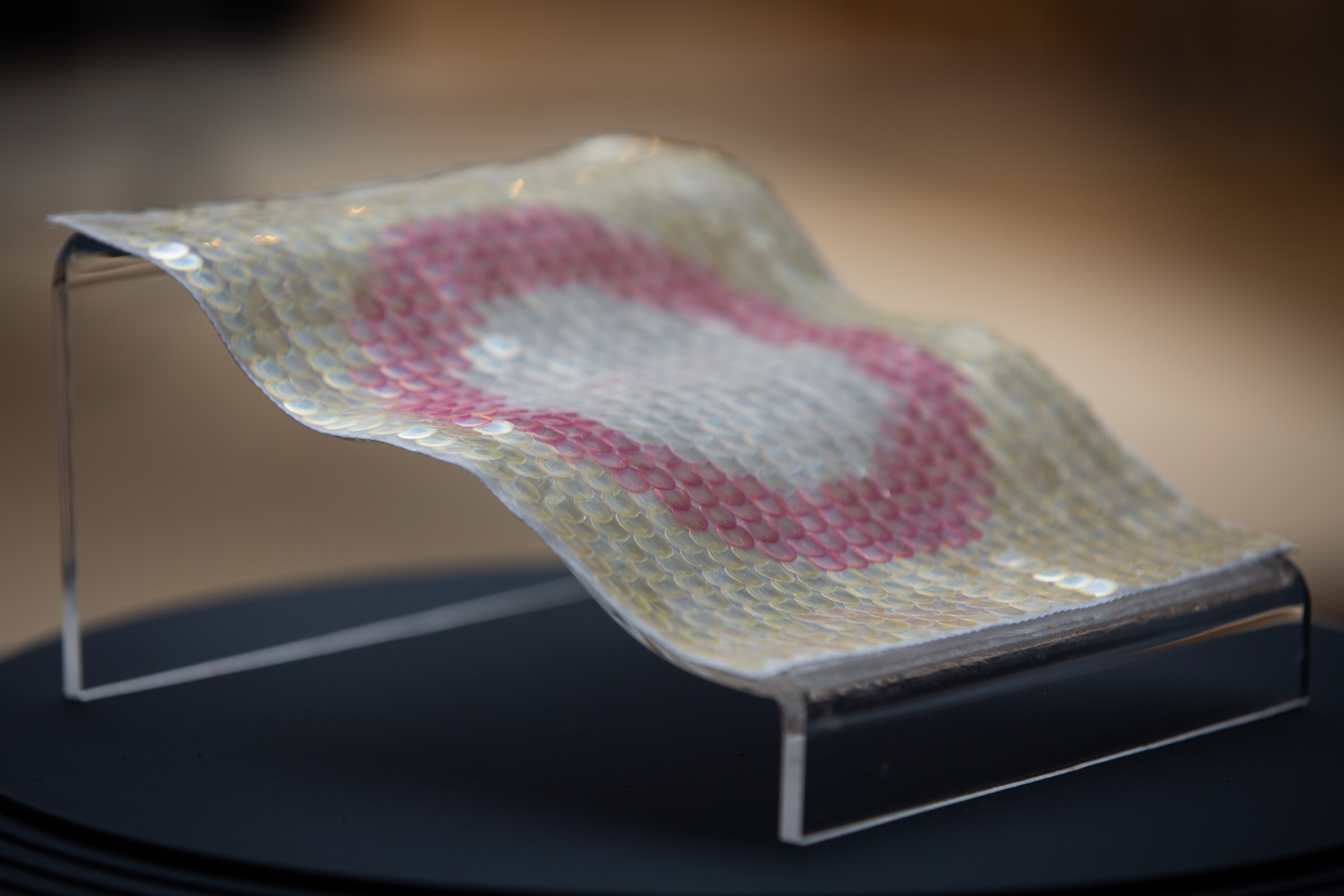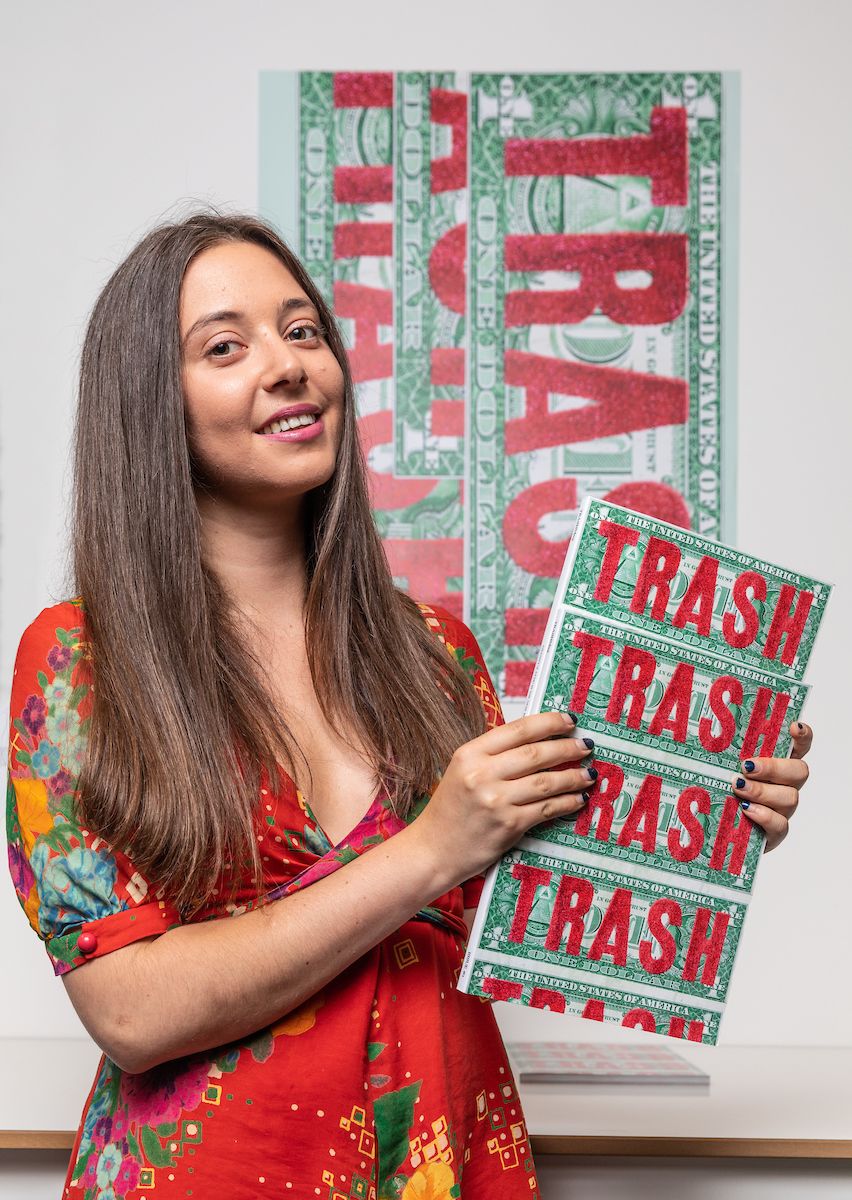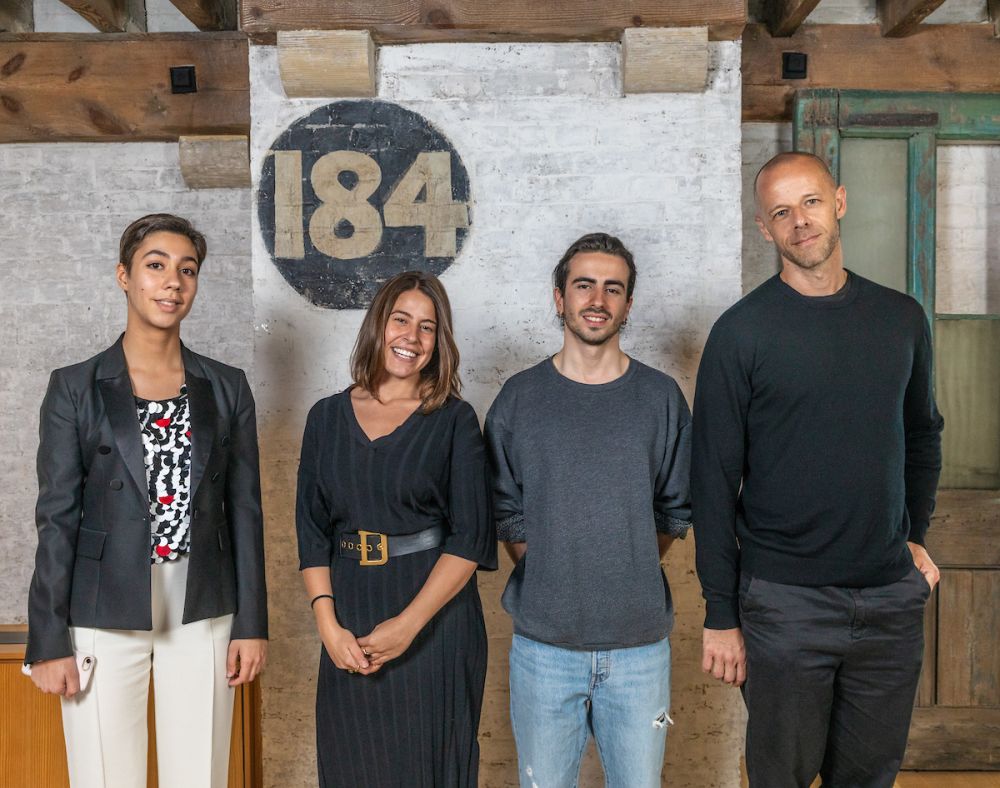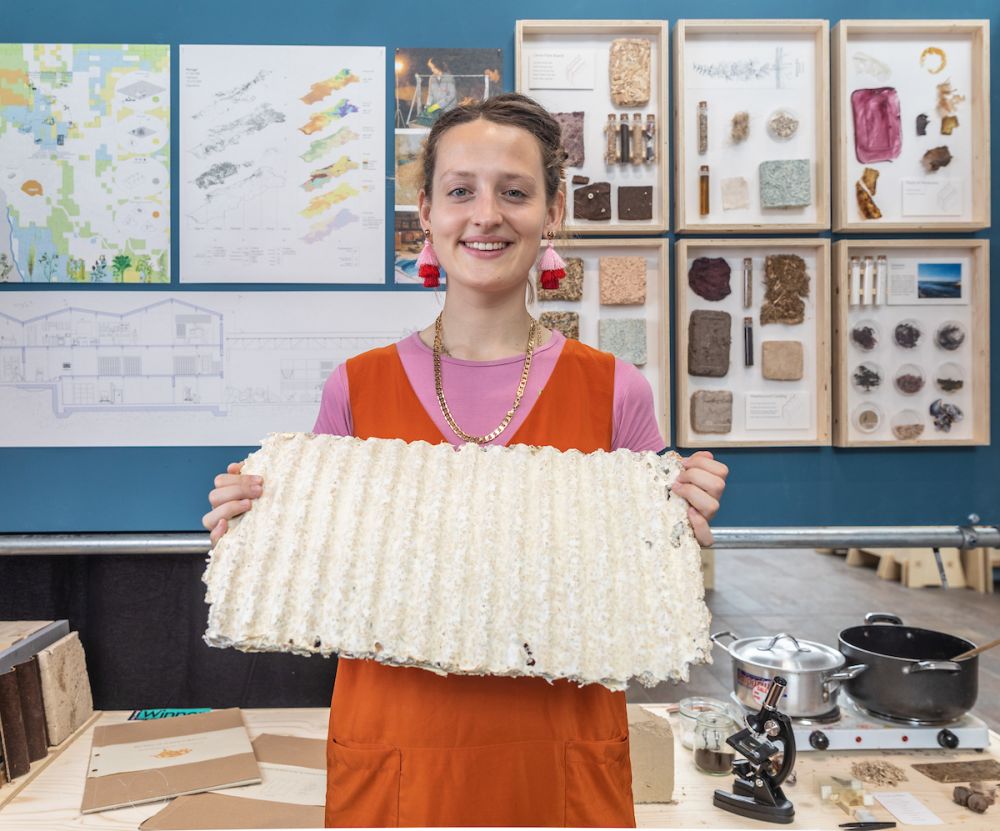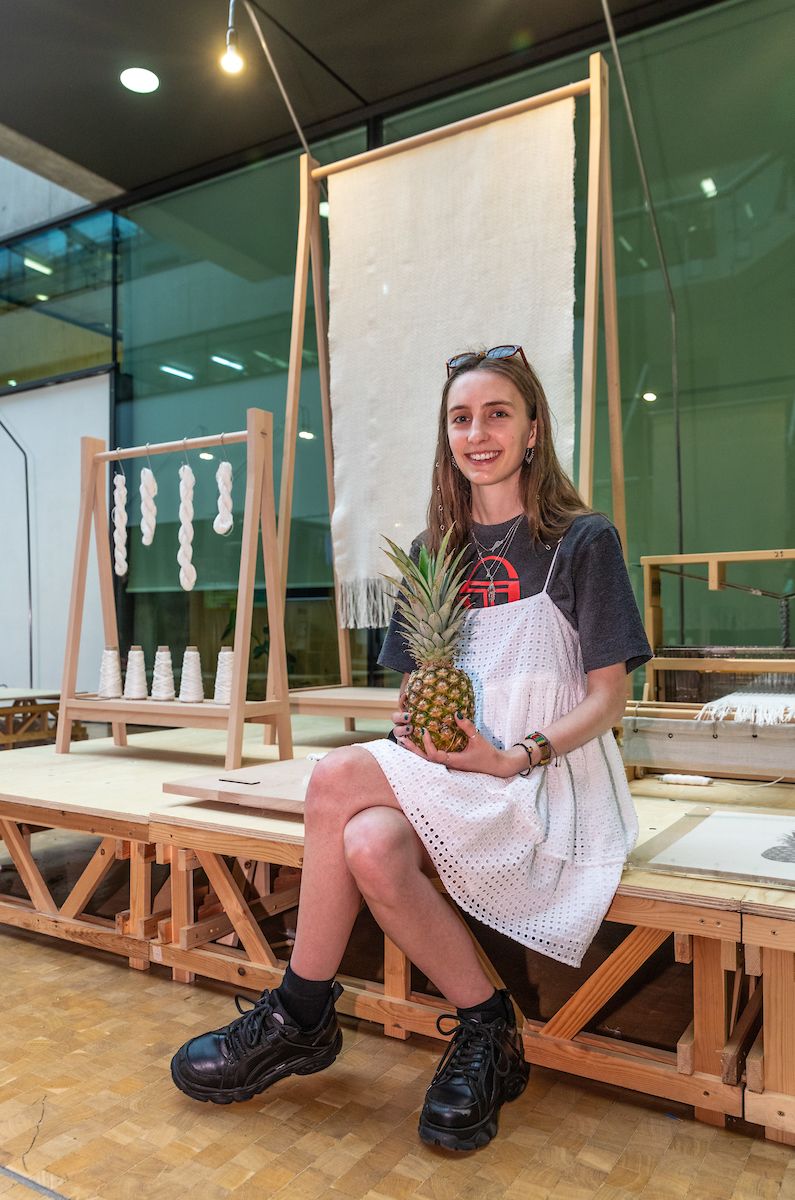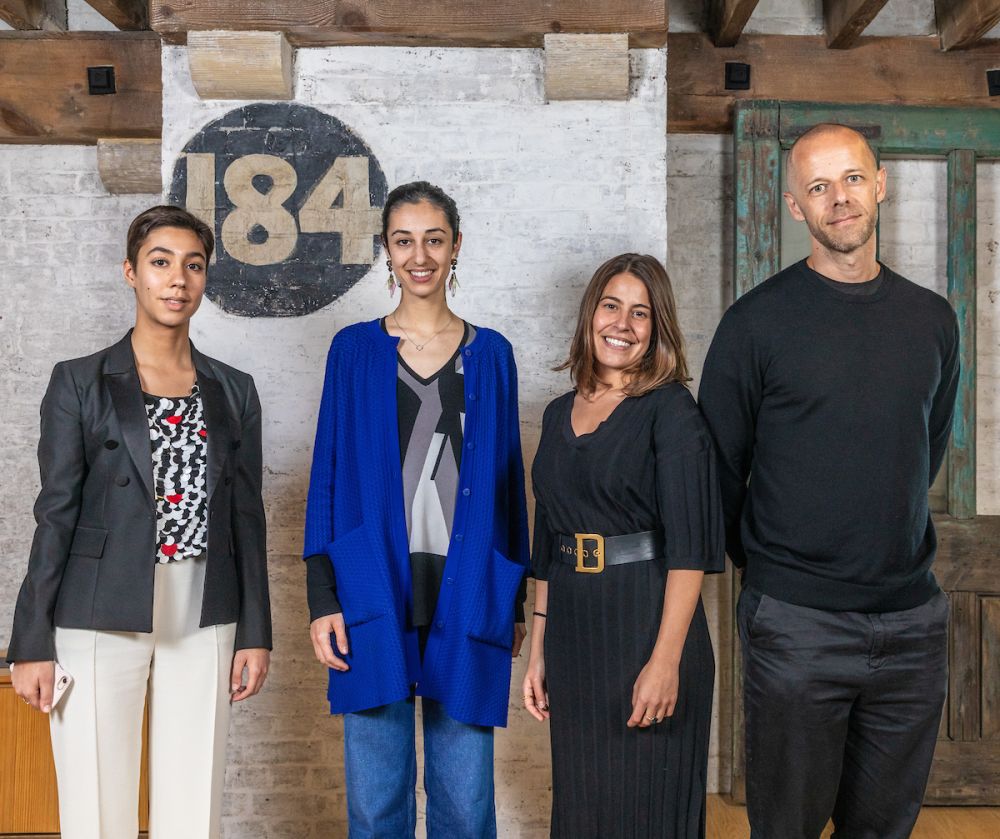From across Show Two: Design, the best of sustainable innovation is celebrated with the Maison/0 Green Trail Awards.
The Maison/0 Green Trail shares the best sustainable projects from fashion to material innovation and this year over 60 graduating students were nominated. From that expansive list, the jury had the difficult decision of selecting five students to share the £5,000 final prize.
The trail's jury included Alexander Capelli, Mazarine Yeremian and Clara Gomez from the LVMH environment team alongside fashion journalist Tamsin Blanchard, MA Biodesign course leader Nancy Diniz and CSM Dean of Academic Programmes Rachel Dickson.
Many congratulations to:
Benjamin Benmoyal, BA Fashion: Fashion Design with Marketing
Elissa Brunato, MA Material Futures
Chekii Harling, BA Fashion Communication: Journalism
Olivia Page, M ARCH Architecture
Nathalie Spencer, MA Material Futures
Gallery
And five commended graduates:
Graysha Assoun, BA Textile Design
Cecily Cracroft-Eley, BA Fashion Design Knitwear
Gabriel De Noray, MA Industrial Design
Jessica Duggan, BA Graphic Communication Design
Penny Hartley, MA Graphic Communication Design
Maison/0 is an incubator of sustainable intelligence designed to provoke practices and challenge our collective futures. Set up as part of the CSM LVMH partnership launched in May 2017, Maison/0 provides a platform to develop innovative sustainable projects across Central Saint Martins and LVMH.

It Was Better Tomorrow – Benjamin Benmoyal
It Was Better Tomorrow is a fashion collection of 10 outfits, made with fabrics designed and woven by Benmoyal using recycled cassette tapes and yarns from dead stock.

Bio Iridescent Sequin – Elissa Brunato

TRASHMag – Chekii Harling
"TRASHMag highlights that there are alternatives to both fast fashion and throwaway luxury, championing designers and artists who work with recycled materials or those that come from nature itself.
The aim of the project was to reinvent the language used when writing about sustainable fashion and environmental issues. TRASHMag utilises humour to bring important issues to people's attention, a tone of voice that was absent from this space."

Re-distributing and Re-sourcing the Production of Construction Materials – Olivia Page
"Our continued unsustainable production of materials will lead to the destruction of the planet. This project responds to these climatic challenges with hope and creativity by making and experimenting with biological waste, abundant and invasive plants. By being more innovative with construction material we can decrease landfill waste, increase biodiversity, celebrate degradability, support local businesses and depend less on non-renewable materials and fossil fuels.
Looking specifically at the area of northern Portugal, I have formed a recipe guidebook to the are of the wastes and materials that create decomposable, low-cost materials. Working with multi-disciplinary teams, such as scientists, engineers, designers and makers we can change the way we product materials in the development towards a more equal and sustainable future."

Wool: re-crafted – Nathalie Spencer
"Studies show that in order to have any chance of slowing down climate change, society must shift from the use of animal derived products to more sustainable alternatives. This project presents a vegan alternative to wool by utilising the discarded waste leaves of pineapples from markets and juice bars around London and processing the fibres into a wearable material. By perceiving waste as a design opportunity, an existing by-product is made into a sustainable and biodegradable vegan textile. Through collaboration, the project uses craft as a catalyst to relocate the value of the material and revive the connections within the making process. At the core lies a more sustainable option to wool that is designed within the circular economy."
